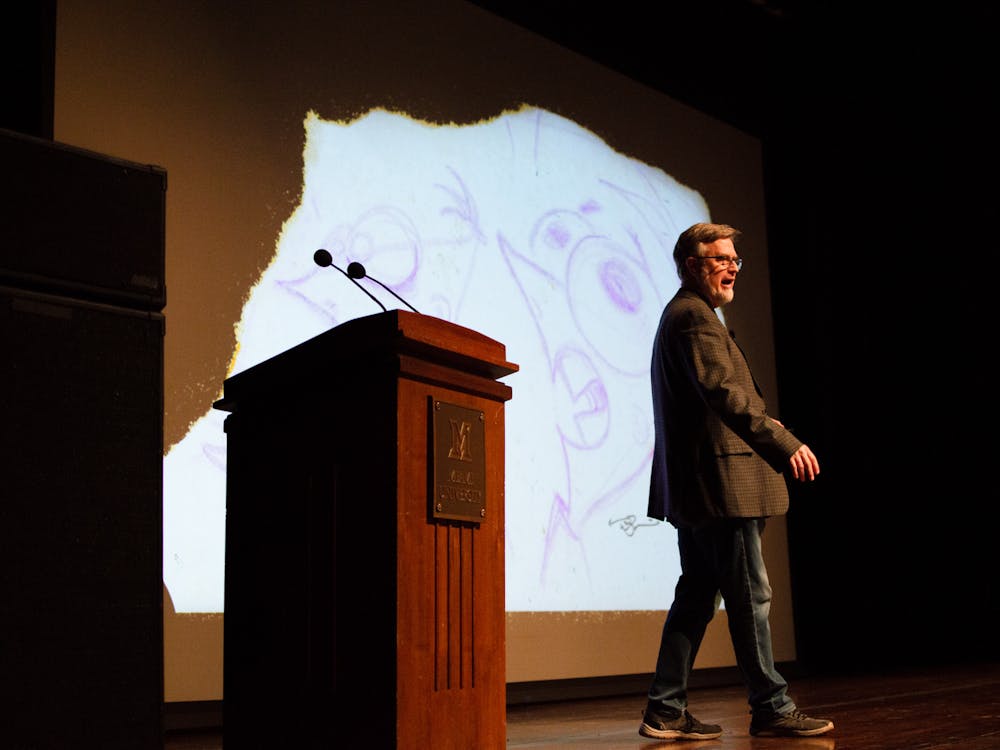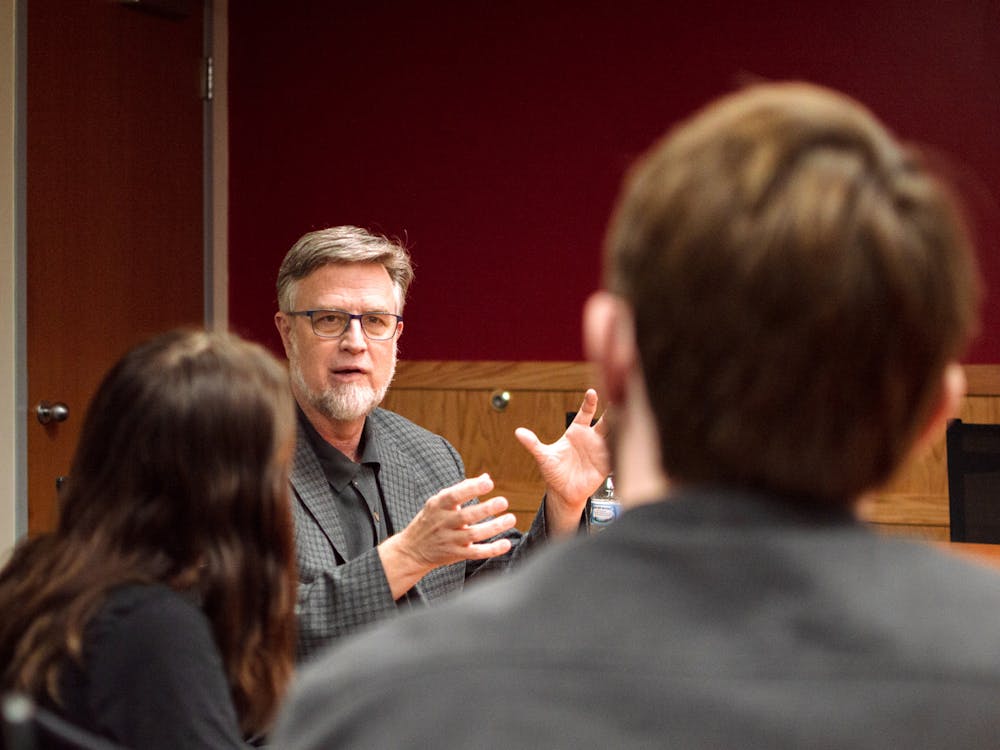Miami University faculty members filled the room in Upham Hall Wednesday evening, April 29, waiting to hear from the co-presidents of the university's newly founded chapter of the American Association of University Professors (AAUP) about how the new organization will impact Miami.
A national organization created to promote academic freedom, professional values and economic stability for students and faculty at higher education institutions, the AAUP is celebrating its 100th anniversary this year.
Keith Tuma, professor of English, and Karen Dawisha, a political science professor, who will serve as co-presidents of the chapter, addressed their fellow faculty members about why they decided to form the organization at Miami.
Tuma noted the work the AAUP has done on behalf of academic freedom, fair pay and higher education policy over the past century.
"It's about time that Miami acknowledged that work and formally joined with it," said Tuma.
Miami is the 15th school in Ohio to bring the AAUP to its campus, following peer schools like Ohio State University, Ohio University, the University of Cincinnati and the University of Dayton, which already had their own chapters of the faculty advocacy group.
As Tuma and Dawisha detailed the goals of the new advocacy group, faculty members filled the 120 seats in the lecture hall and stood in the doorways. Some were wearing AAUP buttons pinned on their blazers and sweaters, and those who came straight from the classroom were toting bags filled with books and students' papers. They listened intently, showing their energetic approval with applause and cheers throughout the speech.
The Miami administration, the Board of Trustees and the Associated Student Government (ASG) were all invited by the AAUP to attend the chapter's launch. According to Tuma, the chapter intends to work closely with all of them to achieve their shared goals.
"We want Miami to be an institution where everyone involved in this core educational mission is fully committed to their roles, a university where our talents, creativity, knowledge and expertise are fully realized," Tuma said.
The only way to do this, he said, was to establish a stronger faculty voice. Dawisha later addressed this issue of establishing real shared governance in which the faculty can more directly influence decisions that affect the university.
"It's not hard to understand that faculty do their best work when they know they are being listened to and taken seriously by the administration," said Tuma. "And the truth is that many of us are not convinced that this has always been the case lately."
The chapter has proposed that an elected faculty member be placed as a voting member on the Board of Trustees. Although elected student representatives already have this opportunity, Miami's faculty does not.
Enjoy what you're reading?
Signup for our newsletter
Among their other concerns is the closing down of faculty space, the decline in the number of full-ride scholarships for students, and the recent announcement of the plans to tear down the Patterson Place Museum on Western Campus.
"That's such a beautiful place on campus," Tuma said afterward. "We were very disappointed to hear of those plans. History matters."
Miami's AAUP chapter also intends to advocate for the adjunct and contingent faculty at Miami. Dawisha noted in her speech that the starting per credit hour wage for adjuncts here has not changed since 1990.
In addition, said Dawisha, their chapter has estimated that roughly double the number of faculty members retired this year than were hired, yet student enrollment continues to rise.
"We want the faculty back. We want the faculty to be informed and active partners," said Dawisha. "But we want that because we want a better university for all, and especially for the sake of our students."
The current president of the national AAUP, Rudy Fichtenbaum, attended the event and spoke to the attendees about the mission of the organization and how it will be implemented at Miami. John McNay, the president of the AAUP for the state of Ohio, also attended.
A former president of Ohio's chapter and a professor of economics at Wright State University, Fichtenbaum affirmed the national AAUP's support for the new chapter.
"We're here to help you," he said.
He spoke about why universities are currently experiencing these issues with rising tuition and student fees and an increasing reliance on non-tenure track faculty, describing administrative spending as part of a broader campaign to privatize higher education.
"Universities have embraced the corporate model," he said.
In addition, Fichtenbaum presented information he gleaned from Miami's audited financial statements. Although the faculty received a 2.5 percent salary increase in 2014, their benefits were reduced by $4.2 million, outweighing the increase in salary.
After Fichtenbaum's address, attendees were invited to share refreshments and new ideas, ask questions of the AAUP's new officers and get to know their potential fellow members.
"I thought it was a really great event," said Tuma. "I was really pleased with the crowd."
Gael Montgomery, professor of Italian, affirmed that the formation of the AAUP is a step in the right direction for the university.
"The faculty at Miami is exceptional and it's time the administration recognized that in deeds as well as words," she said.
Cathy Wagner, an English professor who was just elected by the University Senate for its 2015-2016 Executive Committee, said she is excited to start putting her ideas to action, one of which is to partner with ASG to make a concerted effort to create more transparency between the administration and the university's students and faculty.
"There are very good reasons for students and faculty to be working together right now," said Wagner.
Fichtenbaum said that the launch of the AAUP here on campus is not just to advocate for faculty. The issues which the chapter will address affect students as well.
"I think students should be concerned because when the university has the wrong priorities, money is not spent in the interest of students,"said Fichtenbaum.
In an email, President Hodge commented, "Faculty are the heart of a university, and our success absolutely depends on them being fully engaged in creating Miami's future."




